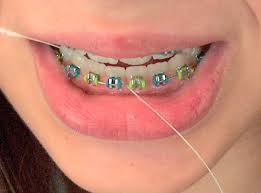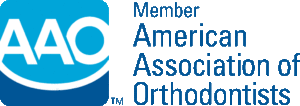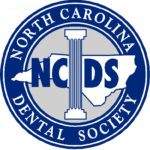To avoid mishaps, here are some dos and don’ts of braces
Braces are often the safest and most effective way to fix poorly-aligned upper and lower teeth. In fact, they’re not just appearance enhancers, they help prevent tooth decay, loss & disease, as well as speech impediments and poor chewing habits.
If braces, however, aren’t properly utilized, maintained and adjusted, their intended benefits may not be achieved. To avoid such mishaps, here are some things you can do and things you shouldn’t regarding your braces.
Absolute Don’ts of Braces

–Don’t eat sticky, sugary, starchy or chewy treats/sweets:
- Caramel
- Dried fruits
- Taffy
- Chewing gum
- Corn on the cob
- Carbonated & high-fructose-corn-syrup/refined-sugar drinks
–Avoid biting your lips or chewing on pencils.
–Stay away from crunchy or hard foods:
- Nuts
- Beef jerky
- Popcorn
- Carrots (unless cooked)
- Apples (applesauce’s okay)
- Pretzels
- Lollipops
- Hard candy
- Tough, semi-raw or still-on-the-bone meats
- Hard-to-chew seafood (e.g., crab legs, squid, etc.)
- Chips
- Hard rolls, bagels & pizza crust
- Crunchy pie crust, brownies & cookies
- Ice
–Don’t breathe through your mouth too often/much.
–Fight the urge to play with or push against the braces with your tongue.
Things You Should Do

–Preferably using a soft toothbrush, brush your teeth thoroughly (including gums & brackets) after every meal/snack since braces accumulate more food particles than teeth. Rinse well before & after brushing.
—Floss your teeth daily preferably using waxed floss and an orthodontic flosser or floss threader; clean under the wires and between the braces.
–For additional teeth cleaning options consider purchasing/using a water-streaming oral irrigator, an interdental/interproximal brush instead of flossing (if feasible), and anti-bacterial mouthwash.
–For braces/wires that chafe against the skin, use a wax specially made to counter this problem; see an orthodontist or pharmacist for details.
–The foods you can eat with braces include:
- Most soft baked items (e.g., bread, pancakes, etc.)
- Dairy products
- Most softly-cooked/naturally-soft poultry & meats
- Any softly-cooked/naturally-soft seafood
- Softly cooked grains
- Softly-cooked/naturally-soft vegetables & fruits
- Soft desserts
–You may take OTC painkillers for the discomfort, soreness, etc., caused by braces, especially at the beginning. You may also use a heating pad and warm-water washcloth for sore jaws.
–Call your orthodontist right away if wires or brackets on your braces become defective, loosened or damaged; it’s not uncommon for braces to need repair, replacement or re-adjustment.
–Please use a mouthguard to protect your braces when playing sports or engaging in physical activities (i.e., biking, skateboarding, etc.).
–Keep up with all your appointments/treatment sessions for best results!
If properly maintained, braces can fix and prevent many problems; they can also motivate you to smile, improve your appearance and help you enjoy foods more fully in the long run. As always, don’t hesitate to contact us with any questions!



